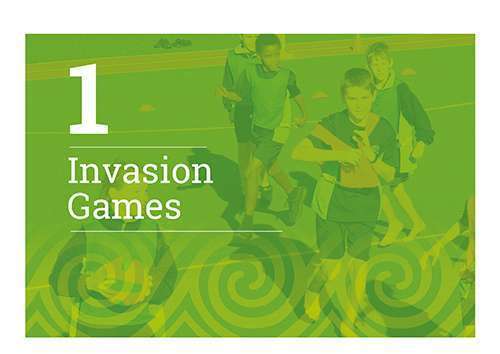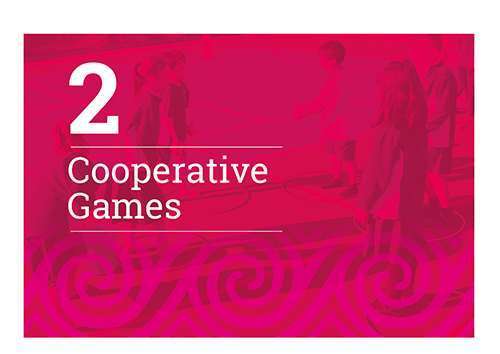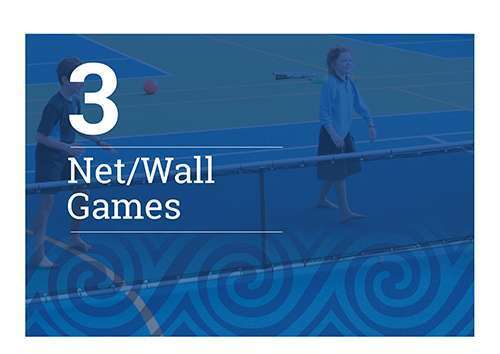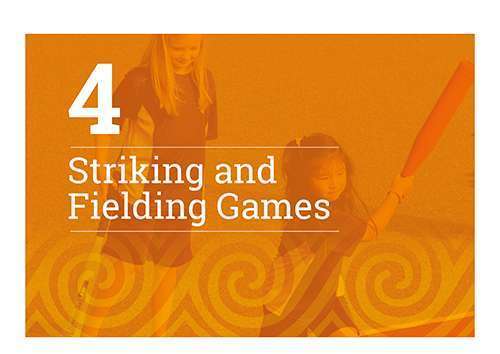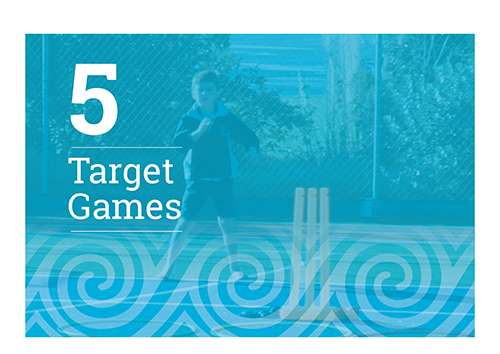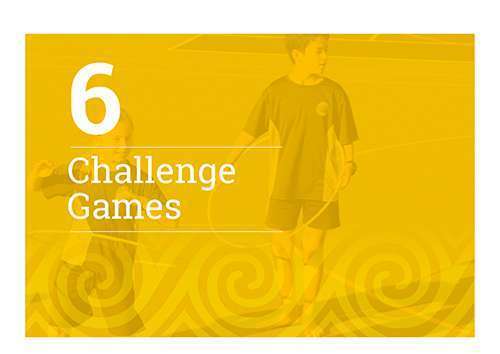MoveWell provides practical ideas, advice and support to help develop children’s confidence, knowledge, skills and attitudes so that they can enjoy participating in physical activity. It combines evidence and research into a practical games-based resource that has strong links to the health and physical education learning area in The New Zealand Curriculum.
MoveWell was developed by Physical Education New Zealand in collaboration with Sport New Zealand and the Accident Compensation Corporation of New Zealand, and is supported by the Ministry of Education.
Download the PDF version and watch the introductory videos (links at the bottom of this page).
The MoveWell resource guides teachers to develop children’s movement skills in an enjoyable, games-centred way. Individual movement skills, such as throwing, catching, kicking, passing, and so on are important to learn. However, these are best taught through games – as effective movement solutions to the problems posed by the game. This resource focuses on teaching children the skills that give them the competence and confidence to play games with others and feel a sense of success.
These five principles define the MoveWell approach and are well supported by contemporary theorising and research relating to games education and skill acquisition.
1. PLAY IS CENTRAL TO LEARNING
Through enjoyable, well-designed games, children not only develop abilities in context, they also develop a sense of self, a sense of belonging, and a sense of community.
2. GAME CONTEXTS PROVIDE AUTHENTIC LEARNING EXPERIENCES
Children learn to swim in water, they learn to skateboard on a skateboard, and they learn to play games by participating in them. They do this best when they are well-supported in socially inclusive learning environments.
3. GOOD PEDAGOGY INVOLVES ACTIVE TEACHING THAT CATERS FOR ALL CHILDREN’S NEEDS
Learning is enhanced when teachers and others actively engage in designing inclusive lessons, guiding children’s learning, and setting problems that engage them in inquiry and problem solving.
4. THROUGH GAMES, CHILDREN DEVELOP THEIR PERSONAL, SOCIAL, AND CULTURAL IDENTITY
Participating in enjoyable game activities provides opportunities to develop positive personal, social, and cultural outcomes central to helping one grow in life, know one’s own strengths, and contribute to others (family, community, and land).
5. LAYING GAMES DEVELOPS THE COMPETENCE AND CONFIDENCE TO PLAY GAMES WITH OTHERS AND TRY OTHER PHYSICAL ACTIVITIES
Developing children’s game-playing ability helps to build the competence and confidence to willingly spend time playing, exploring, and enjoying games with others.
To use MoveWell most effectively for children’s learning, work your way through the ‘How to use this resource’ spiral.
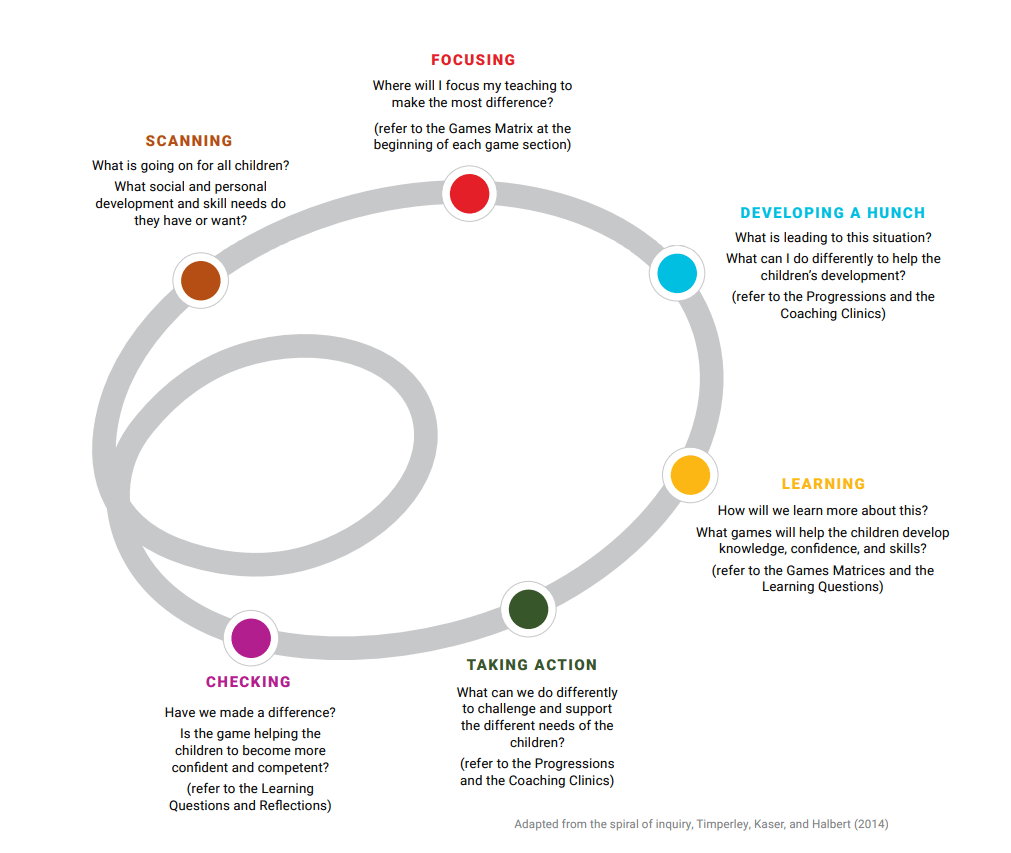
But before you get started read the Introduction and How to use this resource.
Or watch these short video clips that provide an introduction to the resource.
Clip one Introducing Movewell
Clip two Unpacking the five principles that define the MoveWell approach
Clip three Looking at the features of the resource
Clip four Using the resource for quality planning and teaching
The Games
Tag games are games in which two or more players chase other players in an attempt to ‘tag’ them and score a point. The skills learnt in tag games develop to become important in many invasion games. The important outcome is being able to read the opposition.
Invasion games are games in which the aim is to invade an opponent’s territory and score a goal or point. These are typically fast-paced games that need teamwork in order to control the ball, keep possession, move into a scoring position, and prevent the opposition from scoring. Teams share the same playing area as they attempt to both score and prevent the other team from scoring
Cooperative games are those in which players work with one another in order to achieve a common objective. The goal of a cooperative game is to reduce emphasis on competition and increase emphasis on the social aspects of working in teams and groups. Learning to cooperate includes a core set of skills needed in many other game forms.
Net/wall games are games in which players send an object (e.g., ball, shuttle) over a net or against a wall so that it lands in an area that an opponent is defending. The aim is to make it difficult for the opponent to return the object or force them into a mistake.
Striking and Fielding games are those in which one team can score points when a player strikes a ball (or similar object) and runs to designated playing areas while the other team attempts to retrieve the ball and return it to prevent their opponents from scoring.
Target games are those in which players send an object (such as a ball or dart) towards a target area. Sometimes this may also involve avoiding obstacles, defending, guarding, or blocking the path of the opposition’s ball to stop them from scoring. Target games come in two forms. Opposed target games are ones, such as snooker or bowls, where the opposition’s play affects the next move. In unopposed target games, such as golf and darts, the outcome is not affected by what the opposition does.
Challenge games are those in which players solve a particular problem or complete a challenge task. Players can either work individually or as part of a team. Challenge games provide the opportunity to focus on skills, including problem solving, managing risk, and working as a team, that are inherent to active and safe engagement in games as well as enjoying the sense of belonging and being challenged.
Read Games-based movement education: developing a sense of self, belonging, and community through games. Wayne Smith, Alan Ovens & Rod Philpot (2021). This paper presents the philosophy, content, and trialling of ‘MoveWell’. https://doi.org/10.1080/17408989.2021.1886267

